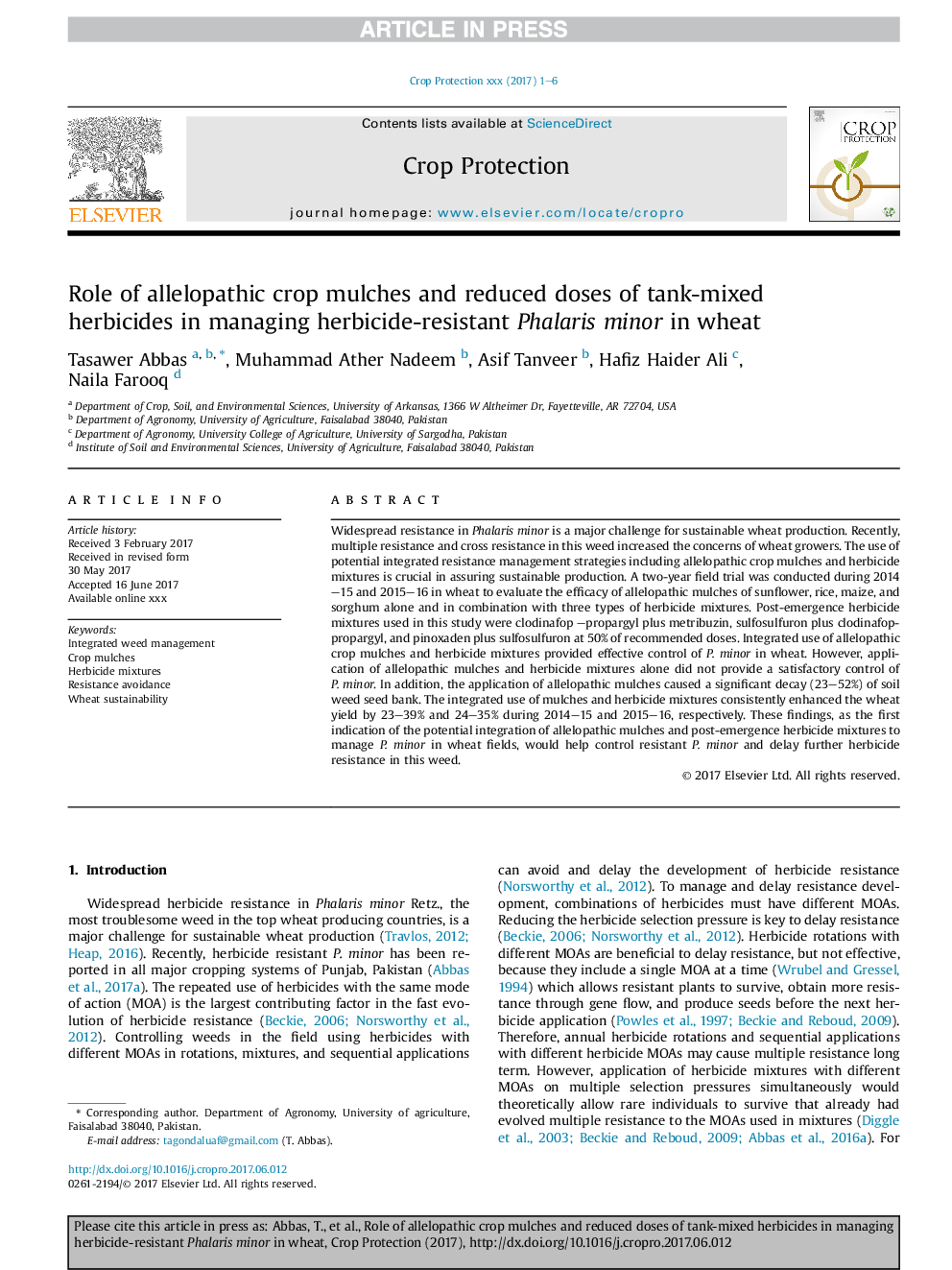| Article ID | Journal | Published Year | Pages | File Type |
|---|---|---|---|---|
| 8878110 | Crop Protection | 2018 | 6 Pages |
Abstract
Widespread resistance in Phalaris minor is a major challenge for sustainable wheat production. Recently, multiple resistance and cross resistance in this weed increased the concerns of wheat growers. The use of potential integrated resistance management strategies including allelopathic crop mulches and herbicide mixtures is crucial in assuring sustainable production. A two-year field trial was conducted during 2014-15 and 2015-16 in wheat to evaluate the efficacy of allelopathic mulches of sunflower, rice, maize, and sorghum alone and in combination with three types of herbicide mixtures. Post-emergence herbicide mixtures used in this study were clodinafop -propargyl plus metribuzin, sulfosulfuron plus clodinafop-propargyl, and pinoxaden plus sulfosulfuron at 50% of recommended doses. Integrated use of allelopathic crop mulches and herbicide mixtures provided effective control of P. minor in wheat. However, application of allelopathic mulches and herbicide mixtures alone did not provide a satisfactory control of P. minor. In addition, the application of allelopathic mulches caused a significant decay (23-52%) of soil weed seed bank. The integrated use of mulches and herbicide mixtures consistently enhanced the wheat yield by 23-39% and 24-35% during 2014-15 and 2015-16, respectively. These findings, as the first indication of the potential integration of allelopathic mulches and post-emergence herbicide mixtures to manage P. minor in wheat fields, would help control resistant P. minor and delay further herbicide resistance in this weed.
Keywords
Related Topics
Life Sciences
Agricultural and Biological Sciences
Agronomy and Crop Science
Authors
Tasawer Abbas, Muhammad Ather Nadeem, Asif Tanveer, Hafiz Haider Ali, Naila Farooq,
